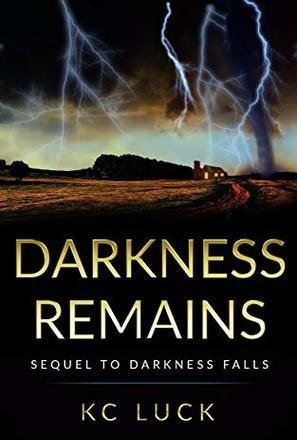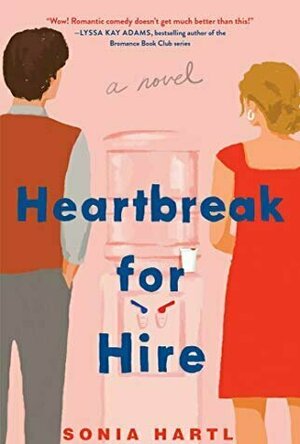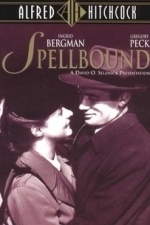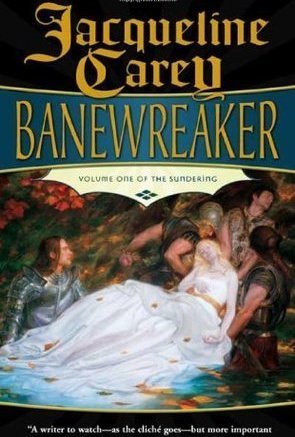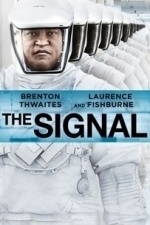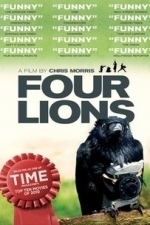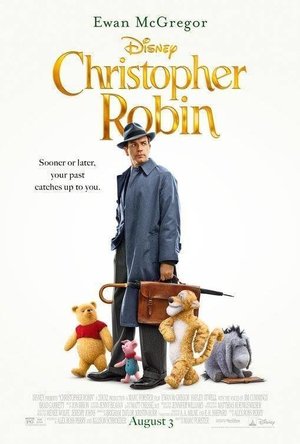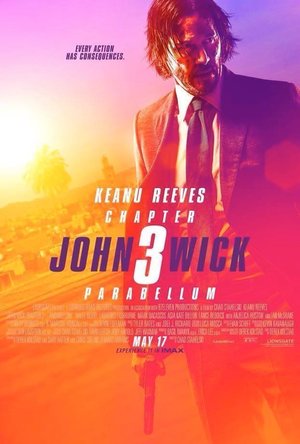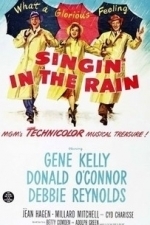Search
Search results

Age of Wushu Dynasty
Games
App
The beacon of war been out for a while, a series of new changes are coming to Jianghu now, the...
Kristy H (1252 KP) rated Heartbreak for Hire in Books
Aug 19, 2021
A wreck of a romance
Brinkley Saunders tells everyone she works as an administrative assistant. But she really works at
Heartbreak for Hire, an undercover operation that specializes in a variety of revenge schemes for jilted lovers, annoyed coworkers, and more. She dropped out of grad school in the aftermath of a disastrous relationship--much to the despair of her mother--but the job helps Brinkley save for her dream of opening her own art gallery. However, when her boss Margo announces she's hiring male Heartbreakers for the first time, Brinkley starts questioning her purpose, especially when one of the new hires is a target she was paid to take down. Markus Cavanaugh is an adjunct anthropology professor at University of Chicago. He doesn't seem like the backstabbing academic she was told to go after... and as she gets to know Markus more and continues to question her role as a Heartbreaker, Brinkley realizes a lot of things aren't what they seem.
"I had my career, my cat, control. The Three C's of avoiding that hopeless cycle of loving someone who didn't love me back."
I feel awful, but this book just did not work for me at all. I almost didn't finish it, but I really try to complete all my ARCs. Ironically I hated most of it except the end, which was actually pretty good. But most of this one had me cringing. Brinkley's job is terrible and makes no sense--I couldn't even see how Heartbreakers and the division of "Egos, Players, Cheaters, and Grifters" would even possibly translate to the real world. Her boss is absolutely awful.
"If we trained men to break women's hearts, what did that say about our mission? What did that say about us?"
The book is filled with ridiculous contrived fights and plot-lines, and I didn't buy the relationship between her and Markus at all. They like each other, hate each other, rinse and repeat, with a bunch of silly "twists" thrown in over and over to keep them apart. Do something and stop whining (this applies equally to them both). It was just boring and stupid, and I couldn't handle all the bad decisions. If there's going to be conflict, I want it to be realistic, and if there's going to be romance, I want to buy into the couple and feel a genuine affection toward them. But with everyone being so hateful to each other, an entire profession created toward tearing people down, and a bunch of random contrived obstacles thrown up to keep Markus and Brinkley apart... I just couldn't handle it.
A lot of other people enjoyed this one far more than me, so hopefully you will too.
I received a copy of this book from Gallery Books and Netgalley in return for an unbiased review.
Heartbreak for Hire, an undercover operation that specializes in a variety of revenge schemes for jilted lovers, annoyed coworkers, and more. She dropped out of grad school in the aftermath of a disastrous relationship--much to the despair of her mother--but the job helps Brinkley save for her dream of opening her own art gallery. However, when her boss Margo announces she's hiring male Heartbreakers for the first time, Brinkley starts questioning her purpose, especially when one of the new hires is a target she was paid to take down. Markus Cavanaugh is an adjunct anthropology professor at University of Chicago. He doesn't seem like the backstabbing academic she was told to go after... and as she gets to know Markus more and continues to question her role as a Heartbreaker, Brinkley realizes a lot of things aren't what they seem.
"I had my career, my cat, control. The Three C's of avoiding that hopeless cycle of loving someone who didn't love me back."
I feel awful, but this book just did not work for me at all. I almost didn't finish it, but I really try to complete all my ARCs. Ironically I hated most of it except the end, which was actually pretty good. But most of this one had me cringing. Brinkley's job is terrible and makes no sense--I couldn't even see how Heartbreakers and the division of "Egos, Players, Cheaters, and Grifters" would even possibly translate to the real world. Her boss is absolutely awful.
"If we trained men to break women's hearts, what did that say about our mission? What did that say about us?"
The book is filled with ridiculous contrived fights and plot-lines, and I didn't buy the relationship between her and Markus at all. They like each other, hate each other, rinse and repeat, with a bunch of silly "twists" thrown in over and over to keep them apart. Do something and stop whining (this applies equally to them both). It was just boring and stupid, and I couldn't handle all the bad decisions. If there's going to be conflict, I want it to be realistic, and if there's going to be romance, I want to buy into the couple and feel a genuine affection toward them. But with everyone being so hateful to each other, an entire profession created toward tearing people down, and a bunch of random contrived obstacles thrown up to keep Markus and Brinkley apart... I just couldn't handle it.
A lot of other people enjoyed this one far more than me, so hopefully you will too.
I received a copy of this book from Gallery Books and Netgalley in return for an unbiased review.
Phillip McSween (751 KP) rated Spellbound (1945) in Movies
Jun 13, 2022
Not the First Hitchcock You Should Watch
When Dr. Anthony Edwardes arrives at a mental hospital in Vermont to replace existing hospital director, Dr. Constance Peterson quickly recognizes him as an impostor. The impostor not only comes clean but also fears he may have killed the real Edwards. It is up to the impostor and Constance to find out the truth of what really happened.
Acting: 10
Gregory Peck is one of the shining actors of the 1940’s and his performance as the impostor doesn’t disappoint. His ability to draw in emotion always manages to root my attention into a scene. Ingrid Bergman was also sensational as Dr. Peterson. The chemistry between the two actors carried the majority of the scenes.
Beginning: 3
Characters: 10
The characters give you just enough throughout the story to move things along. While I did hold out hope that some of the characters would be fleshed out slightly better, I didn’t mind working with what the story gave me. I can’t give away too much without fear of spoilers, but i will say that some of the backstories took an interesting turn.
Cinematography/Visuals: 10
Another man that doesn’t disappoint when it comes to cinematography: Alfred Hitchcock. Mans is in his bag with some really creative shots that probably surprised a 1945 audience. From dream sequences to flashbacks, Hitchcocks devotion to his craft is on full display. Definitely a strong suit of this film.
Conflict: 4
Entertainment Value: 7
At one point in my notes I wrote, “The premise is great. I think it’s the execution that is a little off.” You can see glimpses of where Spellbound wanted to take off, but it’s usually shortlived. I hung in there for the creativity of the premise, but that can only get you so far. Too many lulls and letdowns spoiled the overall experience.
Memorability: 4
Pace: 2
The talking. All the damn talking all the time. Good…Lord. The film is STUFFED with dialogue, 111 minutes of talka-talka-talka. The lack of action begins in the first twenty minutes and becomes and ongoing theme, unfortunately. “Show don’t tell” did not apply here.
Plot: 9
Resolution: 10
Despite my disappointment with how slowly things moved, the film was wrapped up nicely. It actually made me even more upset with the movie as a whole because the ending was great potential for what ALL of Spellbound should have been. This film could have done a ton of things better. The ending, though? Solid.
Overall: 69
Not my favorite Hitchcock, Spellbound misses the mark in a number of different departments. I don’t know, it left a bad taste in my mouth and left me unfulfilled. If you’re looking to work through Hitchcock’s filmography, maybe save this one for later on down the road.
Acting: 10
Gregory Peck is one of the shining actors of the 1940’s and his performance as the impostor doesn’t disappoint. His ability to draw in emotion always manages to root my attention into a scene. Ingrid Bergman was also sensational as Dr. Peterson. The chemistry between the two actors carried the majority of the scenes.
Beginning: 3
Characters: 10
The characters give you just enough throughout the story to move things along. While I did hold out hope that some of the characters would be fleshed out slightly better, I didn’t mind working with what the story gave me. I can’t give away too much without fear of spoilers, but i will say that some of the backstories took an interesting turn.
Cinematography/Visuals: 10
Another man that doesn’t disappoint when it comes to cinematography: Alfred Hitchcock. Mans is in his bag with some really creative shots that probably surprised a 1945 audience. From dream sequences to flashbacks, Hitchcocks devotion to his craft is on full display. Definitely a strong suit of this film.
Conflict: 4
Entertainment Value: 7
At one point in my notes I wrote, “The premise is great. I think it’s the execution that is a little off.” You can see glimpses of where Spellbound wanted to take off, but it’s usually shortlived. I hung in there for the creativity of the premise, but that can only get you so far. Too many lulls and letdowns spoiled the overall experience.
Memorability: 4
Pace: 2
The talking. All the damn talking all the time. Good…Lord. The film is STUFFED with dialogue, 111 minutes of talka-talka-talka. The lack of action begins in the first twenty minutes and becomes and ongoing theme, unfortunately. “Show don’t tell” did not apply here.
Plot: 9
Resolution: 10
Despite my disappointment with how slowly things moved, the film was wrapped up nicely. It actually made me even more upset with the movie as a whole because the ending was great potential for what ALL of Spellbound should have been. This film could have done a ton of things better. The ending, though? Solid.
Overall: 69
Not my favorite Hitchcock, Spellbound misses the mark in a number of different departments. I don’t know, it left a bad taste in my mouth and left me unfulfilled. If you’re looking to work through Hitchcock’s filmography, maybe save this one for later on down the road.
Mandy and G.D. Burkhead (26 KP) rated Banewreaker in Books
May 20, 2018
Shelf Life – Banewreaker Will Make You Feel Bad for Sauron
Contains spoilers, click to show
Very few fantasy fans can get away with admitting that they aren’t all that big into sweeping, high epic fantasy à la Lord of the Rings or the Pern stories or everything that Terry Brooks writes. Many non-fantasy fans, however, can point to these tales as examples of why they aren’t into fantasy. Like it or not, it’s hard not to see the latter group’s point, as a lot of high fantasy is riddled with confusing terminology, rehashed stories, and genre clichés. This is not to say that these stories are bad, per sé, just that they can easily turn off readers who aren’t in the right kind of crowd.
Banewreaker, the first book in Jacqueline Carey’s two-part volume The Sundering, will probably not change any opinions in this respect, then, as it’s sweeping high fantasy to the core. This, as it turns out, is both its greatest strength and its greatest weakness.
There are some reviews out there that laud Banewreaker as a masterful examination of subjective viewpoints in an epic fantasy turned into a human tragedy by a simple change of perspective. And they are absolutely correct.
There are other reviews, however, that call the book out as a heap of all of the stalest fantasy clichés piled one atop the other in a confusing and pretentious jumble with a shellacking of purple prose for good measure. And they are also absolutely correct.
Let me explain.
For starters, it would be inaccurate to say that this story is full of clichés. This story is clichés. This story is every familiar and used-up trope you would expect from a high fantasy, all of those details that have been done to death in thousands of other versions until almost nothing that happens seems original anymore.
This is what’s going to turn off a lot of people. But the thing is, Banewreaker has to be this way. It wants the reader to look at all of the things that they’ve come to expect from a fantasy epic and then, by shifting the narrative focus, realize that all of these beloved tropes are actually, when you think about it, tragic as hell.
In other words, it’s Lord of the Rings from Sauron’s point of view.
It’s not a riff, though. It’s not goofy like most of the stuff I go in for. It takes its subject just as seriously as the stories that it’s mirroring, and this is what makes the whole story ultimately so gripping and so moving.
The story starts out like many stories of this magnitude, with exposition stretching back to the Dawn of This Particular Creation. In this case, we have a protogenos world god named Uru-Alat who died and gave rise to seven smaller godlike beings called Shapers. First comes Haomane, who becomes the Lord of Thought and sets himself up as head honcho for this ensuing pantheon. Second is Arahila, the Basically a Love Goddess; and third is Satoris, whose purview was “the quickening of the flesh,” which is high fantasy speak for sexy times. Four more Shapers come after this who, for the sake of brevity, we’ll be glossing over.
To summarize the important godly exposition, the Seven Shapers set about shaping the world to the surprise of no one. Haomane creates elves (here called Ellyl, but if you’ve ever even looked at a fantasy, you know that they’re the elves here), Arahila creates humans, and Satoris doesn’t create anything because he’s busy hanging out with dragons and learning their wisdom. Satoris grants his fleshy quickening to the humans but not the elves, because Haomane didn’t want his elves to do that. Then Haomane decides he doesn’t want the humans to do that either, but Satoris refuses to take the gift away again. Conflict escalates, god wars ensue, and the world splits into two continents, with Satoris ostracized from his brethren on one and the remaining Shapers on the other. By the time the dust has settled, Satoris is scarred and burned pitch black, living in a mostly dead land thanks to Haomane’s wrath, but with a dagger in his possession that is the only weapon capable of killing any of the Shapers.
The story itself picks up thousands of years later, with Satoris as the Satan/Sauron stand-in living in a forbidding land surrounded by classically evil things like trolls, giant spiders, and insane people. Since Haomane is the head god, the rest of the world believes Satoris to be a terrible figure of evil and betrayal, while Satoris’s few allies know him as a pitiable and misunderstood figure who only ever wanted to honor his word and do right by his own sense of morality rather than the dictates of his elder brother god king.
From here the plot becomes the typical Army of Good vs. Army of Evil adventure, but with the protagonistic focus on Satoris and his allies. His trolls we see not as a mindless horde but as a simple, honorable people who happily serve their lord because he happily serves them right back. The mad individuals inhabiting his fortress are castaways from normal society with nowhere else to go. And the giant spiders just happen to live there and be bigger than normal, with no sinister intentions beyond that.
And just like that, by actually showing us the home life of the ultimate in evil fantasy tropes, we see how easily one side’s view of evil is another’s view of good. In doing so, Banewreaker becomes perhaps the first sweeping fantasy epic with no real bad guy, just two sides of an unfortunate conflict. Both sides have their likeable characters, both sides seem from their view to be in the right, and pretty soon you, as the reader, will stop cheering for either one, because whenever one person that you like succeeds it means that another person whom you also like is failing.
In fact, the closest thing that this story has to a clearly-labeled “evil” character is the sorceress Lilias, and even then, she’s not evil so much as a woman who has done some bad things for completely understandable reasons. Lilias, in fact, is one of the most pitiful characters in this whole saga of pitiable characters, with her fears and attachments closely mirroring those of most readers, only amplified by her immortality and magical powers. She is afraid of dying. She wants to be more in the grand scheme of things than just another man’s wife or another country’s momentary ruler, both of which would just be tiny moments in a long history. She likes her youth. She likes having pretty things and pretty people around her. And from her interactions with her dragon mentor and apparently only friend, Calandor, we see that she is also capable of intense affection and even love just as she is capable of indulging in self-centered self-interest that, if not particularly a good trait, is also one that she is not alone in possessing.
Banewreaker, then, is a story with a large cast of characters but very few actual heroes or innocents as well as very few outright villains, which is exactly what it sets out to be. Those who love it and those who hate it both seem to blame this quality in particular for their feelings. The biggest complaint leveled against it (that I have read, anyway) is that the people we should be rooting for do not deserve our sympathy, while the people we should be rooting against are more misguided and unwilling to see things in another light than deserving of our scorn.
This is true. But if it’s a flaw, it’s an intentional one. And if it makes you feel like you shouldn’t be cheering for either side at all in this conflict, that’s the point. This is a story of clichés, yes, but it has something that it needs to say about these clichés and, in doing so, about the subjective and impossibly nebulous quality of morality in general.
In short, here again is another fantasy story about the Forces of Good wiping out an entire nation dedicated to their “evil” enemy. And as the story points out, even if you believe in that cause, you’re still wiping out an entire nation of people. No way is there not a downside to that. Seeing things in a black-and-white morality just means crushing a whole lot of important shades of gray underfoot.
Whether or not you like Banewreaker, then, depends in large part upon how much you realize that Carey as an author is being self-aware. As someone who read and still hasn’t stopped being awed over her Kushiel series, I can’t claim complete objectivity in this area, because I came to Banewreaker already in love with her. I can say, however, that unless you have an intense and searing aversion to ornate and sweeping style, this book is worth any fantasy-lover’s time – especially if you’ve ever felt a pang of empathy for all of the poor villainous mooks that fantasy heroes tend to mow down without a thought because they were the wrong kind of ugly.
Banewreaker, the first book in Jacqueline Carey’s two-part volume The Sundering, will probably not change any opinions in this respect, then, as it’s sweeping high fantasy to the core. This, as it turns out, is both its greatest strength and its greatest weakness.
There are some reviews out there that laud Banewreaker as a masterful examination of subjective viewpoints in an epic fantasy turned into a human tragedy by a simple change of perspective. And they are absolutely correct.
There are other reviews, however, that call the book out as a heap of all of the stalest fantasy clichés piled one atop the other in a confusing and pretentious jumble with a shellacking of purple prose for good measure. And they are also absolutely correct.
Let me explain.
For starters, it would be inaccurate to say that this story is full of clichés. This story is clichés. This story is every familiar and used-up trope you would expect from a high fantasy, all of those details that have been done to death in thousands of other versions until almost nothing that happens seems original anymore.
This is what’s going to turn off a lot of people. But the thing is, Banewreaker has to be this way. It wants the reader to look at all of the things that they’ve come to expect from a fantasy epic and then, by shifting the narrative focus, realize that all of these beloved tropes are actually, when you think about it, tragic as hell.
In other words, it’s Lord of the Rings from Sauron’s point of view.
It’s not a riff, though. It’s not goofy like most of the stuff I go in for. It takes its subject just as seriously as the stories that it’s mirroring, and this is what makes the whole story ultimately so gripping and so moving.
The story starts out like many stories of this magnitude, with exposition stretching back to the Dawn of This Particular Creation. In this case, we have a protogenos world god named Uru-Alat who died and gave rise to seven smaller godlike beings called Shapers. First comes Haomane, who becomes the Lord of Thought and sets himself up as head honcho for this ensuing pantheon. Second is Arahila, the Basically a Love Goddess; and third is Satoris, whose purview was “the quickening of the flesh,” which is high fantasy speak for sexy times. Four more Shapers come after this who, for the sake of brevity, we’ll be glossing over.
To summarize the important godly exposition, the Seven Shapers set about shaping the world to the surprise of no one. Haomane creates elves (here called Ellyl, but if you’ve ever even looked at a fantasy, you know that they’re the elves here), Arahila creates humans, and Satoris doesn’t create anything because he’s busy hanging out with dragons and learning their wisdom. Satoris grants his fleshy quickening to the humans but not the elves, because Haomane didn’t want his elves to do that. Then Haomane decides he doesn’t want the humans to do that either, but Satoris refuses to take the gift away again. Conflict escalates, god wars ensue, and the world splits into two continents, with Satoris ostracized from his brethren on one and the remaining Shapers on the other. By the time the dust has settled, Satoris is scarred and burned pitch black, living in a mostly dead land thanks to Haomane’s wrath, but with a dagger in his possession that is the only weapon capable of killing any of the Shapers.
The story itself picks up thousands of years later, with Satoris as the Satan/Sauron stand-in living in a forbidding land surrounded by classically evil things like trolls, giant spiders, and insane people. Since Haomane is the head god, the rest of the world believes Satoris to be a terrible figure of evil and betrayal, while Satoris’s few allies know him as a pitiable and misunderstood figure who only ever wanted to honor his word and do right by his own sense of morality rather than the dictates of his elder brother god king.
From here the plot becomes the typical Army of Good vs. Army of Evil adventure, but with the protagonistic focus on Satoris and his allies. His trolls we see not as a mindless horde but as a simple, honorable people who happily serve their lord because he happily serves them right back. The mad individuals inhabiting his fortress are castaways from normal society with nowhere else to go. And the giant spiders just happen to live there and be bigger than normal, with no sinister intentions beyond that.
And just like that, by actually showing us the home life of the ultimate in evil fantasy tropes, we see how easily one side’s view of evil is another’s view of good. In doing so, Banewreaker becomes perhaps the first sweeping fantasy epic with no real bad guy, just two sides of an unfortunate conflict. Both sides have their likeable characters, both sides seem from their view to be in the right, and pretty soon you, as the reader, will stop cheering for either one, because whenever one person that you like succeeds it means that another person whom you also like is failing.
In fact, the closest thing that this story has to a clearly-labeled “evil” character is the sorceress Lilias, and even then, she’s not evil so much as a woman who has done some bad things for completely understandable reasons. Lilias, in fact, is one of the most pitiful characters in this whole saga of pitiable characters, with her fears and attachments closely mirroring those of most readers, only amplified by her immortality and magical powers. She is afraid of dying. She wants to be more in the grand scheme of things than just another man’s wife or another country’s momentary ruler, both of which would just be tiny moments in a long history. She likes her youth. She likes having pretty things and pretty people around her. And from her interactions with her dragon mentor and apparently only friend, Calandor, we see that she is also capable of intense affection and even love just as she is capable of indulging in self-centered self-interest that, if not particularly a good trait, is also one that she is not alone in possessing.
Banewreaker, then, is a story with a large cast of characters but very few actual heroes or innocents as well as very few outright villains, which is exactly what it sets out to be. Those who love it and those who hate it both seem to blame this quality in particular for their feelings. The biggest complaint leveled against it (that I have read, anyway) is that the people we should be rooting for do not deserve our sympathy, while the people we should be rooting against are more misguided and unwilling to see things in another light than deserving of our scorn.
This is true. But if it’s a flaw, it’s an intentional one. And if it makes you feel like you shouldn’t be cheering for either side at all in this conflict, that’s the point. This is a story of clichés, yes, but it has something that it needs to say about these clichés and, in doing so, about the subjective and impossibly nebulous quality of morality in general.
In short, here again is another fantasy story about the Forces of Good wiping out an entire nation dedicated to their “evil” enemy. And as the story points out, even if you believe in that cause, you’re still wiping out an entire nation of people. No way is there not a downside to that. Seeing things in a black-and-white morality just means crushing a whole lot of important shades of gray underfoot.
Whether or not you like Banewreaker, then, depends in large part upon how much you realize that Carey as an author is being self-aware. As someone who read and still hasn’t stopped being awed over her Kushiel series, I can’t claim complete objectivity in this area, because I came to Banewreaker already in love with her. I can say, however, that unless you have an intense and searing aversion to ornate and sweeping style, this book is worth any fantasy-lover’s time – especially if you’ve ever felt a pang of empathy for all of the poor villainous mooks that fantasy heroes tend to mow down without a thought because they were the wrong kind of ugly.
Phillip McSween (751 KP) rated The Signal (2014) in Movies
Apr 30, 2018
Meh
Three college students get more than what they bargained for when they try to track down a computer genius that hacked their computers and end up fighting for their lives instead.
Acting: 10
Beginning: 5
Characters: 4
The characters harbored no depth whatsoever. As a result there was never a point in the film where I cared about what happened to any of them. They were stale, moving about the film aimlessly. The only time they were remotely interesting was towards the end and I won't spoil why.
Not only did they bore me, they infuriated me at the same time. The decision-making of main character Nic (Brenton Thwaites) was just maddening. How he repeatedly found himself in the same perilous situations blew my mind. At one point, I remember saying, "At this point, you deserve what happens." You know it's going to be a long film when the main character can't win you over.
Cinematography/Visuals: 8
Conflict: 4
While there are some points of intrigue, the film seems to bumble along for the most part with much ado about nothing. You recognize that there is a mystery unfolding, but the terrible character development didn't help to raise my level of caring. The two action sequences that are worthwhile don't redeem the film as a whole.
Genre: 4
I love sci-fi. There are too many films to count that have helped shape the genre. When it comes to sci-fi, this ranks towards the bottom of the barrel for me. There are no real points of connection that gave it the spark it needed to capture my interest. The true sci-fi elements come too little too late.
Memorability: 7
Pace: 5
Watching this film is like watching a baby trying to walk, but not quite as cute. You're waiting for the film to collapse at any moment due to its shaky foundation and then you get to a point where you say, "Just be done already." After about the fourth or fifth eyeroll, I was beyond ready for the film's conclusion.
Plot: 3
Just dumb. Do I need to expand on this? The story has enough holes to make swiss cheese jealous. Sure, things became less confusing as the story progressed, but the answers given were beyond far-fetched. I think a stronger story overall is what could have turned the tides of the entire film.
Resolution: 6
From a visuals standpoint, the ending was pretty cool. From a justifiable and satisfaction-level standpoint? Going to take a hard pass. I won't spoil the ending, but I'll just say the payoff is far from worth it. Interesting yes...but incomplete.
Overall: 56
Even before the ending brought the film to a necessary close, there were so many points along the way director William Eubank could have tweaked to improve this film. Alas, it didnt seem to be worth his time and neither should this film be for yours.
Acting: 10
Beginning: 5
Characters: 4
The characters harbored no depth whatsoever. As a result there was never a point in the film where I cared about what happened to any of them. They were stale, moving about the film aimlessly. The only time they were remotely interesting was towards the end and I won't spoil why.
Not only did they bore me, they infuriated me at the same time. The decision-making of main character Nic (Brenton Thwaites) was just maddening. How he repeatedly found himself in the same perilous situations blew my mind. At one point, I remember saying, "At this point, you deserve what happens." You know it's going to be a long film when the main character can't win you over.
Cinematography/Visuals: 8
Conflict: 4
While there are some points of intrigue, the film seems to bumble along for the most part with much ado about nothing. You recognize that there is a mystery unfolding, but the terrible character development didn't help to raise my level of caring. The two action sequences that are worthwhile don't redeem the film as a whole.
Genre: 4
I love sci-fi. There are too many films to count that have helped shape the genre. When it comes to sci-fi, this ranks towards the bottom of the barrel for me. There are no real points of connection that gave it the spark it needed to capture my interest. The true sci-fi elements come too little too late.
Memorability: 7
Pace: 5
Watching this film is like watching a baby trying to walk, but not quite as cute. You're waiting for the film to collapse at any moment due to its shaky foundation and then you get to a point where you say, "Just be done already." After about the fourth or fifth eyeroll, I was beyond ready for the film's conclusion.
Plot: 3
Just dumb. Do I need to expand on this? The story has enough holes to make swiss cheese jealous. Sure, things became less confusing as the story progressed, but the answers given were beyond far-fetched. I think a stronger story overall is what could have turned the tides of the entire film.
Resolution: 6
From a visuals standpoint, the ending was pretty cool. From a justifiable and satisfaction-level standpoint? Going to take a hard pass. I won't spoil the ending, but I'll just say the payoff is far from worth it. Interesting yes...but incomplete.
Overall: 56
Even before the ending brought the film to a necessary close, there were so many points along the way director William Eubank could have tweaked to improve this film. Alas, it didnt seem to be worth his time and neither should this film be for yours.
RəX Regent (349 KP) rated Four Lions (2010) in Movies
Mar 7, 2019
The fine between comedy and tragedy...
Contains spoilers, click to show
I can remember first hearing about this early in 2010, and was unsure as what to expect. On one hand this could have been a nasty hate film, mocking the wave of Muslim extremism which is taking a firm hold in this country, merely for the entertainment value, or this could be one of the important satires on the subject to date.
It was by far, without a shadow of doubt, the latter. Four Lions follows five amateur, lackluster Muslims from Sheffield who all believe that they are a primed terror cell on the frontline of the war against the infidels. Unfortunately for them, they are bunglers, whilst achieving the ability to create explosives, they have failed to control how and when it explodes! The plot culminates with an attempt to attack the London Marathon but it is a long road, taking our protagonists to the terror camps of Pakistan, and the town halls of Sheffield. This film is written and directed so expertly, it is literally frightening.
Morris and his pitch perfect cast deliver a film which so perfectly walks the razor wire tightrope between comedy and tragedy that every laugh is tinged with sadness or pity and every dark moment, seemingly comedic.
Is this a comedy? Decidedly not, but is this funny, and intentionally so? Yes. It's almost as if the laughs are out of sheer relief, as moments which should shock are delivered or followed up by some of the most profoundly realistic and yet ridiculous conversions.
The Lion King explanation for the war against the west; The almost horrifically callous 'Honey Monster' exchange as a police sniper may well have just shot an innocent civilian will stick in your mind. Let alone more simple humour, such as the eating of the sim cards to prevent tracking, which resembled the Catholic method of taking of the bread at mass.
But this was also about grooming: Grooming the audience to sympathise with a terror cell plotting in our midst was genius, whist having to watch the various methods employed within the group itself, leading to some of the films most poignant and tragic moments.
The disenfranchised Muslim population of this country have been captured so well, though portrayed on one hand as been dimwitted 'wanna-be terrorists', but on the other as real people, miss led with some of the most ridiculous concepts designed to reduce their lives to that of mediocrity in order to convince them to take so many others. This is a sympathetic peace movie in a time of great confusion and conflict.
Until now, United 93 was the film which had most summed up the dark times in which we live, following 9/11, but this is at least on par with it and is a great addition to a long and significant catalogue of topical anti-establishment films, such as M.A.S.H. and Dr. Strangelove.
Not just highly recommended, but a MUST SEE!
It was by far, without a shadow of doubt, the latter. Four Lions follows five amateur, lackluster Muslims from Sheffield who all believe that they are a primed terror cell on the frontline of the war against the infidels. Unfortunately for them, they are bunglers, whilst achieving the ability to create explosives, they have failed to control how and when it explodes! The plot culminates with an attempt to attack the London Marathon but it is a long road, taking our protagonists to the terror camps of Pakistan, and the town halls of Sheffield. This film is written and directed so expertly, it is literally frightening.
Morris and his pitch perfect cast deliver a film which so perfectly walks the razor wire tightrope between comedy and tragedy that every laugh is tinged with sadness or pity and every dark moment, seemingly comedic.
Is this a comedy? Decidedly not, but is this funny, and intentionally so? Yes. It's almost as if the laughs are out of sheer relief, as moments which should shock are delivered or followed up by some of the most profoundly realistic and yet ridiculous conversions.
The Lion King explanation for the war against the west; The almost horrifically callous 'Honey Monster' exchange as a police sniper may well have just shot an innocent civilian will stick in your mind. Let alone more simple humour, such as the eating of the sim cards to prevent tracking, which resembled the Catholic method of taking of the bread at mass.
But this was also about grooming: Grooming the audience to sympathise with a terror cell plotting in our midst was genius, whist having to watch the various methods employed within the group itself, leading to some of the films most poignant and tragic moments.
The disenfranchised Muslim population of this country have been captured so well, though portrayed on one hand as been dimwitted 'wanna-be terrorists', but on the other as real people, miss led with some of the most ridiculous concepts designed to reduce their lives to that of mediocrity in order to convince them to take so many others. This is a sympathetic peace movie in a time of great confusion and conflict.
Until now, United 93 was the film which had most summed up the dark times in which we live, following 9/11, but this is at least on par with it and is a great addition to a long and significant catalogue of topical anti-establishment films, such as M.A.S.H. and Dr. Strangelove.
Not just highly recommended, but a MUST SEE!
Phillip McSween (751 KP) rated Christopher Robin (2018) in Movies
Apr 1, 2019
Endearing and Pleasant
Never was a big “Winnie the Pooh” guy growing up, but I was always familiar with the characters. Christopher Robin made me fall in love with these characters all the same. Now an adult, Christopher returns to the Hundred Acre Woods to reunite with old friends he left behind.
Acting: 10
Jim Cummings is stellar as both Pooh and Tigger. Although I don’t have a huge point of reference, I can say that it felt like he poured his heart into these characters, making them extremely lovable. His tone and inflection just have a way of making me smile. I also loved Brad Garrett voicing Eeyore. That choice is almost a given as his voice is perfect, but I loved how he took the role and made it his own. Amazing job by the cast all around.
Beginning: 9
Characters: 10
Cinematography/Visuals: 10
Reminiscent of what they did with the Snuggle bear, the characters are not quite animated, but an odd form of CGI. They don’t feel like fake creatures, rather they are a uniquely pleasant creation. Seeing them interact with Christopher Robin and the settings around them was a treat. I loved the way the Hundred Acre Woods are captured and the well-crafted closeups of the characters that evoke emotion. Especially powerful was the montage of Christopher Robin growing into a man at the beginning of the movie. It shows you just how far removed he is from his childhood.
Conflict: 7
Genre: 9
I appreciate it when a kids film can take their material and use it to appeal to adults. Christopher Robin straddles the line between adults and children extremely well and makes it an enjoyable experience for all. I smiled. I laughed. And maybe, just maybe, I got a little teary.
Memorability: 9
The movie hits you with a strong message about the necessity of growing up and the importance of holding on to yourself as you age. Watching it inspired me to remember how it felt to be fancy free without a care in the world and how good that felt. The movie does a great job of sprinkling the message in with the fun of the story.
One of my favorite scenes in the movie is when Pooh and Christopher reunite for the first time. They are sitting on park benches facing away from each other. It’s an endearing moment that helps to get the adventure rolling.
Pace: 10
Plot: 10
Resolution: 10
If this ending doesn’t move you, you are not human. Kidding, but it’s the perfect sappy ending for a sappy movie. The kind of ending that makes you want to start the movie over from the beginning and watch it all over again.
Overall: 94
First Po, then Paddington, now Pooh. I don’t know what it is about these bears that put a smile on my face, but whatever it is, it works! Christopher Robin was definitely one of my favorite movies of 2018.
Acting: 10
Jim Cummings is stellar as both Pooh and Tigger. Although I don’t have a huge point of reference, I can say that it felt like he poured his heart into these characters, making them extremely lovable. His tone and inflection just have a way of making me smile. I also loved Brad Garrett voicing Eeyore. That choice is almost a given as his voice is perfect, but I loved how he took the role and made it his own. Amazing job by the cast all around.
Beginning: 9
Characters: 10
Cinematography/Visuals: 10
Reminiscent of what they did with the Snuggle bear, the characters are not quite animated, but an odd form of CGI. They don’t feel like fake creatures, rather they are a uniquely pleasant creation. Seeing them interact with Christopher Robin and the settings around them was a treat. I loved the way the Hundred Acre Woods are captured and the well-crafted closeups of the characters that evoke emotion. Especially powerful was the montage of Christopher Robin growing into a man at the beginning of the movie. It shows you just how far removed he is from his childhood.
Conflict: 7
Genre: 9
I appreciate it when a kids film can take their material and use it to appeal to adults. Christopher Robin straddles the line between adults and children extremely well and makes it an enjoyable experience for all. I smiled. I laughed. And maybe, just maybe, I got a little teary.
Memorability: 9
The movie hits you with a strong message about the necessity of growing up and the importance of holding on to yourself as you age. Watching it inspired me to remember how it felt to be fancy free without a care in the world and how good that felt. The movie does a great job of sprinkling the message in with the fun of the story.
One of my favorite scenes in the movie is when Pooh and Christopher reunite for the first time. They are sitting on park benches facing away from each other. It’s an endearing moment that helps to get the adventure rolling.
Pace: 10
Plot: 10
Resolution: 10
If this ending doesn’t move you, you are not human. Kidding, but it’s the perfect sappy ending for a sappy movie. The kind of ending that makes you want to start the movie over from the beginning and watch it all over again.
Overall: 94
First Po, then Paddington, now Pooh. I don’t know what it is about these bears that put a smile on my face, but whatever it is, it works! Christopher Robin was definitely one of my favorite movies of 2018.
Phillip McSween (751 KP) rated John Wick: Chapter 3 - Parabellum (2019) in Movies
Jun 3, 2019
Hoping it Doesn't Become a Victim of its Own Success
The world is trying to kill John Wick (Keanu Reeves)…but not before he kills them first.
Acting: 9
Beginning: 10
Characters: 8
This third installment brings back a lot of the characters we have become familiar with in the first two movies. There’s Wick, of course, striking like a black mamba and trying to kill everything in his path. Winston (Ian McShane) is back as the tasteful Manager of the underworld assassin hotel being his usual charming self. I was excited to see hotel concierge Charon (Lance Reddick) get a larger slice of the action this time around as it was long overdue in my opinion.
The rest of the characters? Meh. I could take them or leave them. Reason being, they mostly felt flat for some reason. Take The Adjudicator (Asia Kate Dillon) for example. It felt like she just showed up to be an asshole for two minutes then she would disappear. Her role was annoying at best. But Wick is who we come to see. And Wick delivers. Who cares if he’s shooting at a bunch of cardboard cut-outs?
Cinematography/Visuals: 10
Conflict: 10
Genre: 10
Memorability: 8
Slightly more forgettable than the first two installments as it stumbles through a few parts here and there. There were a number of amazing scenes I can say for certain I haven’t seen done in any other action movie or any movie period. What they did with animals alone was a pleasant treat. I won’t spoil anything that you probably should know already, but I will say that the creativity and the stylistic choices of the kills makes movies like these really hard to forget.
Pace: 10
Plot: 5
There were definitely some parts that left me shaking my head. I don’t know why director Chad Stahelski chose to throw certain things in. It was almost as if they did it for the sake of trying to add more drama. With movies like these, there is no need to force anything as the drama typically comes anyway. The story is all over the place at times, overdone in others.
Resolution: 6
I watched the ending thinking, “Good…but stop there please.” It didn’t leave me wanting more, rather for the series to be done. Not sure what could have been done differently, but I think it stumbles compared to the endings of the first two.
Overall: 86
A solid addition to the franchise for sure. However, I feel it must be said: This series needs to end while it still has life. I know there is a fourth one on the way in a couple of years along with a TV show. Let’s just hope John Wick doesn’t get Hollywooded to death as a victim of its own success.
Acting: 9
Beginning: 10
Characters: 8
This third installment brings back a lot of the characters we have become familiar with in the first two movies. There’s Wick, of course, striking like a black mamba and trying to kill everything in his path. Winston (Ian McShane) is back as the tasteful Manager of the underworld assassin hotel being his usual charming self. I was excited to see hotel concierge Charon (Lance Reddick) get a larger slice of the action this time around as it was long overdue in my opinion.
The rest of the characters? Meh. I could take them or leave them. Reason being, they mostly felt flat for some reason. Take The Adjudicator (Asia Kate Dillon) for example. It felt like she just showed up to be an asshole for two minutes then she would disappear. Her role was annoying at best. But Wick is who we come to see. And Wick delivers. Who cares if he’s shooting at a bunch of cardboard cut-outs?
Cinematography/Visuals: 10
Conflict: 10
Genre: 10
Memorability: 8
Slightly more forgettable than the first two installments as it stumbles through a few parts here and there. There were a number of amazing scenes I can say for certain I haven’t seen done in any other action movie or any movie period. What they did with animals alone was a pleasant treat. I won’t spoil anything that you probably should know already, but I will say that the creativity and the stylistic choices of the kills makes movies like these really hard to forget.
Pace: 10
Plot: 5
There were definitely some parts that left me shaking my head. I don’t know why director Chad Stahelski chose to throw certain things in. It was almost as if they did it for the sake of trying to add more drama. With movies like these, there is no need to force anything as the drama typically comes anyway. The story is all over the place at times, overdone in others.
Resolution: 6
I watched the ending thinking, “Good…but stop there please.” It didn’t leave me wanting more, rather for the series to be done. Not sure what could have been done differently, but I think it stumbles compared to the endings of the first two.
Overall: 86
A solid addition to the franchise for sure. However, I feel it must be said: This series needs to end while it still has life. I know there is a fourth one on the way in a couple of years along with a TV show. Let’s just hope John Wick doesn’t get Hollywooded to death as a victim of its own success.
Phillip McSween (751 KP) rated Singin' in the Rain (1952) in Movies
Mar 28, 2018
Timeless
Hollywood star Don Lockwood (Gene Kelly) has to figure out how to save his first "talking picture" film after a negative early screening.
Acting: 10
I was amazed by the versatility of the actors/actresses in the film. To be able to hit lines passionately AND dance and sing through huge musical numbers has to take some serious skill, skill I couldn't even begin to possess. The performances of Gene Kelly, Donald O'Connor, and Debbie Reynold transcend time, holding strong an amazing 65 years later!
Reynolds was my favorite as (Kathy Selden). Her charm and humor are effortless and natural. Not only did she hold her own in her every scene, but she made every scene outstanding. I can't believe I am just now learning to appreciate this woman's greatness. I suppose that's what my Movies 365 quest is all about.
Beginning: 9
I suppose I should chime in here as this received my lowest score. Singin' In the Rain gets off to a very solid start as it grabs my attention right from the beginning. It's intriguing and I wasn't quite sure where they were going after the first ten minutes. Did I really enjoy the first ten minutes of the film? Absolutely. Does it compare to some of the best starts in film history. Sadly, not quite, but not far off either. Consider it a minor boo-boo that didn't even require a band-aid.
Characters: 10
Cinematography/Visuals: 10
Conflict: 10
Genre: 10
Compared to other musicals out there, you can't even mention the genre without thinking Singin' In the Rain. The musical numbers are extravagant and phenomenal. What's more, the film doesn't rely just on the music to succeed as the scripted dialogue is every bit as strong. La La Land astounded me. This film blew me away.
Memorability: 10
Pace: 10
Sometimes this can be hard to manage in a musical whether there's too much singing and not enough dialogue scenes or vice versa. This film does an excellent job of seamlessly blending the two. Every song had its purpose and each number is active and fun, keeping you engaged throughout the film. It never got slow at any point.
Plot: 10
The story was an evolving creation. You think something is going to happen then the film takes an entirely different turn. Just when you think you have it all figured out, they throw another surprise in. The plot is clever, intriguing, and unique. I have yet to see anything like it.
Resolution: 10
Overall: 99
I went into this film wondering what all the hype was about and, after watching, I can say it's not hype. Not by a long shot, not by any means. Singin' In the Rain is amazing today and it's going to be wonderful thirty years from now. It gets all the little things perfectly right like the classic scene where Don is having a conversation about the film as they're walking past different set pieces. Timeless.
Acting: 10
I was amazed by the versatility of the actors/actresses in the film. To be able to hit lines passionately AND dance and sing through huge musical numbers has to take some serious skill, skill I couldn't even begin to possess. The performances of Gene Kelly, Donald O'Connor, and Debbie Reynold transcend time, holding strong an amazing 65 years later!
Reynolds was my favorite as (Kathy Selden). Her charm and humor are effortless and natural. Not only did she hold her own in her every scene, but she made every scene outstanding. I can't believe I am just now learning to appreciate this woman's greatness. I suppose that's what my Movies 365 quest is all about.
Beginning: 9
I suppose I should chime in here as this received my lowest score. Singin' In the Rain gets off to a very solid start as it grabs my attention right from the beginning. It's intriguing and I wasn't quite sure where they were going after the first ten minutes. Did I really enjoy the first ten minutes of the film? Absolutely. Does it compare to some of the best starts in film history. Sadly, not quite, but not far off either. Consider it a minor boo-boo that didn't even require a band-aid.
Characters: 10
Cinematography/Visuals: 10
Conflict: 10
Genre: 10
Compared to other musicals out there, you can't even mention the genre without thinking Singin' In the Rain. The musical numbers are extravagant and phenomenal. What's more, the film doesn't rely just on the music to succeed as the scripted dialogue is every bit as strong. La La Land astounded me. This film blew me away.
Memorability: 10
Pace: 10
Sometimes this can be hard to manage in a musical whether there's too much singing and not enough dialogue scenes or vice versa. This film does an excellent job of seamlessly blending the two. Every song had its purpose and each number is active and fun, keeping you engaged throughout the film. It never got slow at any point.
Plot: 10
The story was an evolving creation. You think something is going to happen then the film takes an entirely different turn. Just when you think you have it all figured out, they throw another surprise in. The plot is clever, intriguing, and unique. I have yet to see anything like it.
Resolution: 10
Overall: 99
I went into this film wondering what all the hype was about and, after watching, I can say it's not hype. Not by a long shot, not by any means. Singin' In the Rain is amazing today and it's going to be wonderful thirty years from now. It gets all the little things perfectly right like the classic scene where Don is having a conversation about the film as they're walking past different set pieces. Timeless.
